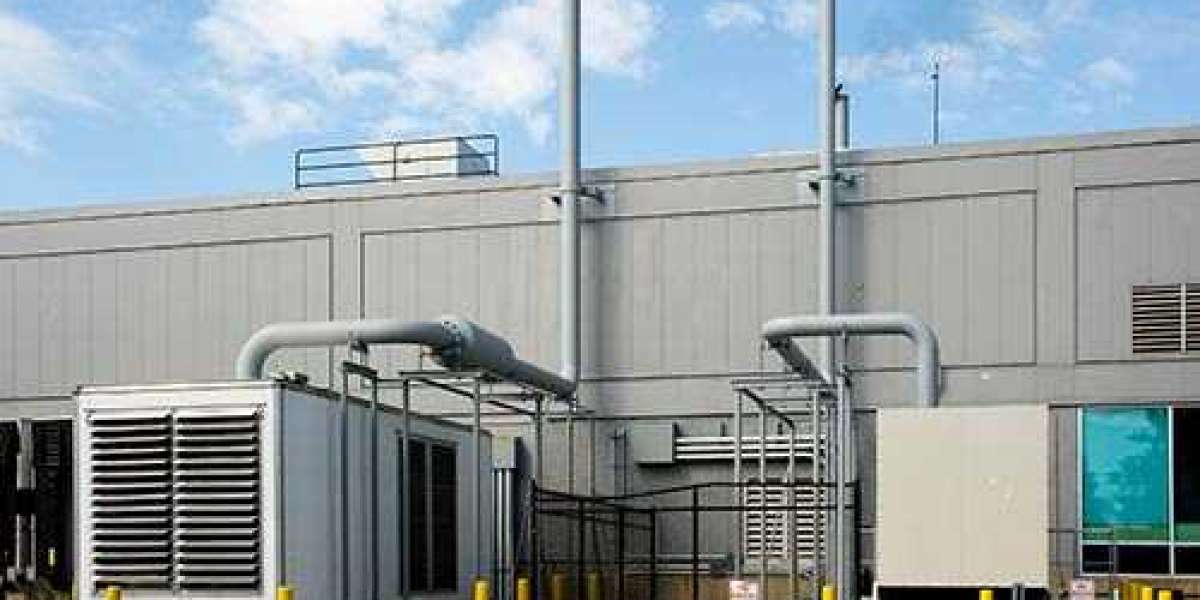We have all heard about generators, right? At home or work, generators have great use when there is a power outage as they help us to continue our necessary tasks by supplying electrical power. No matter if you are at a multiplex watching a movie or at home on your LED, you run healthcare services, or conduct transportation work, electricity is a must. And the device that provides it when there is a cut-off from the grid supply is the generator.
You can always do a little research or visit https://www.ablesales.com.au/diesel-generators-perth.html. Here are many different models of generators to help you in times of electric supply breakdown. There are many different configurations of generators available in physical and electrical forms. Also, there are many interesting facts about generators, such as their workings, types, and uses, which we are going to discuss in this article.
The workings of the generator
A generator can be said to be a device through which the mechanical energy obtained from any external unit is converted into electrical energy and supplied as an output to other electrical devices.
The electrical energy is not created by the generators; instead, it drives the electric charges existing inside the wires among its windings into an outside circuit using the mechanical energy provided to it. The flow of electrical charges in the circuit produces the electric current.
The electromagnetic induction principle, which Michael Faraday discovered in 1831-32, is the basis on which the contemporary generator operates. Faraday observed that rotating an extension cord, for example, a wire carrying electrical currents, in a magnetic force could produce the above-mentioned flow of electricity charges. Electric current is created as a result of the movement because it results in a voltage difference between the ends of the wire.
Types of generators
The different generator types and their usage can be related. Portable generators, standby generators, and industrial generators are some of the several types of generators available for these purposes.
Portable generators
Portable generators have numerous applications in a variety of fields. As per their application, they come in various power configurations. Especially during natural disasters and calamities, they play a major role in helping to have a power supply when the supply from the grid has a breakdown.
Standby generators
When the grid goes down, standby generators are used to automatically come on. These are especially helpful for buildings that use grid power, such as residences, hotels, restaurants, and hospitals.
Industrial generators:
The application of industrial generators is quite different from that of residential generators. They are designed in a way that they serve in robust as well as harsh conditions and supply the required electric power for the big machines to run smoothly. To find the best generator is to understand your requirements and then choose the one according to them.
Uses of generators
Generators have long been considered a necessity for cautious businesses and home owners. They have only grown in popularity in recent years, thanks in part to their wide range of skills. They are used in many different places and serves the best alternative when there are power cut-offs.
To overcome the routine power outage
Sometimes, even for a non-emergency reason, there is a power outage and your daily routine gets disrupted. At such times, a high-power standby generator is all you need and your devices will continue working.
Business Standby Power
Compared to the average homeowner, commercial businesses are substantially more concerned about grid electrical reliability. Millions of dollars in unfulfilled orders and clients lost for good could result from only a few hours of stopped equipment.
The easiest option for businesses to guarantee a completely uninterrupted power supply is with a standby generator (or two). In certain businesses, including such hospitals, where a theoretically uninterrupted supply is necessary, and a UPS (uninterrupted power supply) equipment can be utilised to guarantee that energy doesn't go off for even a few seconds.
At construction sites
You may have seen that construction sites don’t have power supplies available readily, but this does not mean that everything has to be done by hand. For this purpose, high-power diesel generators are the best option. They can be used to power ventilators, security, water pumps, and more. For the welding work, there is one other generator used at the construction sites which helps in conducting this task without much effort.
Agricultural operation
In addition to providing portable electricity for working in difficult-to-reach places, generators are frequently employed both as backup generators and as essential power for farming operations. A few pieces of agricultural and ranching equipment that are frequently powered by generators are irrigation systems, air pumps for fish farms, and heaters for barns, stables, or chicken coops.
At mining sites
Along with the construction sites, the other primitive places where generators are the required option to conduct the mining operations, if you ever visit a mining site, you will see that 70% of the work in the mines is done with the help of the generators. Activities such as elevators, drills, and more.
Sports Activities
Scoreboards, lights for night games, announcer speakers, and other gadgets are frequently powered by generators at schools and sports groups. While big, trailer-mounted generators are frequently required to supply enough electricity for the environment, portable generators can occasionally be used for similar purposes.
The outdoor gatherings
A wedding, a family reunion, or a simple cookout are all examples of outdoor activities that necessitate the use of generators. A power source is required for the DJ setup, lighting for the dance floor, food microwaves, coffee machines, the photo studio, and any cooling and heating equipment.
Sports Activities
Scoreboards, lights for night games, announcer speakers, and other gadgets are frequently powered by generators at schools and sports groups. While big, trailer-mounted generators are frequently required to supply enough power for the environment, portable generators can occasionally be used for similar purposes.
Conclusion
These are some of the few uses of generators where they are essential devices to continue supplying electricity and help us continue our normal life. So it is understood that different genset plays different role in the economy.








